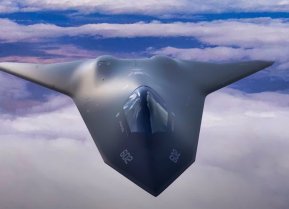Unifying Korea: A New Strategy for Dealing with Kim Jong Un
Since the possibility of war cannot be eliminated, the priority of the ROK-U.S. alliance is to deter war. The additional threat is instability and regime collapse in North Korea.
The U.S. and its allies must stop worrying about what North Korean leader Kim Jong Un is doing or will do. Instead, make the North Korean regime worry. Focus on human rights, information, cyber, sanctions, military readiness, and the pursuit of a free and unified Korea. Present Kim with a broad effort to bring peace, prosperity, and stability to the Korean peninsula by showing the Korean people in the North that their sacrifice and suffering is the result of Kim Jong Un's failed policies, promises, and strategy. Create conditions that will cause Kim to change his behavior or be faced with change from within.
Kim’s promise has failed. The regime’s nuclear weapons have not brought North Koreans peace and prosperity.
Kim has taken away the hope of his people by removing the strategic objective of peaceful unification. North Koreans believe that peaceful unification is the only path to a better life. Kim has taken away that possibility.
Kim Jong Un does not fear the ROK or U.S. militaries as much as he fears his own people. Information, human rights, and the example set by South Korea are existential threats to the regime. The Republic of Korea commands the moral high ground by seeking peaceful unification.
Seoul and Washington must deal with North Korea and Kim Jong Un as they really exist, and not as we wish them to be.
War, Internal Threats, and the Possibility of Regime Collapse
Since the possibility of war cannot be eliminated, the priority of the ROK-U.S. alliance is to deter war. The additional threat is instability and regime collapse in North Korea.
Kim’s recent activities, including his regime’s strengthened ties with Russia and its pursuit of advanced military capabilities, are reactions to the internal stresses he faces. Those stresses in turn result from his failed promises, and from the removal of hope for a better future for the people. The regime will collapse under two conditions. The first condition is that the Korean Workers Party can no longer govern all the territory in the north from Pyongyang. The second is a loss of coherence and support in the military and security services.
However, there is extreme danger that these conditions could drive Kim to decide he will carry out his plan to unify the peninsula by force – he will do it to ensure his survival.
Nature, Objectives, and Strategy of the Kim Family Regime
The Kim family regime conducts political warfare and blackmail diplomacy. It develops advanced military capabilities.
Political warfare focuses on subverting the South Korean government and society and driving a wedge in the ROK-U.S. alliance to create favorable conditions for unification on regime terms. Blackmail diplomacy is the use of increased tension, threats, and provocations to extort political and economic concessions from South Korea, the U.S., and the international community. The regime creates tension, makes threats, and conducts provocations that are designed to create the perception of an external threat to the North. This allows the regime to justify the suffering and sacrifices of North Koreans. It is a false perception, because South Korea and the U.S. have no intention of attacking the North except in self-defense.
The development of North Korea’s advanced military capabilities is not for defense, but to support the use of force once the proper conditions are established. The regime intends to use force to unify the Korean peninsula under the domination of the Guerrilla Dynasty and the Gulag State. It intends to do this to ensure the single strategic goal that is its vital national interest: The everlasting survival of the Kim family regime.
Let Us Understand This
The only end to North Korea’s nuclear and missile programs and its military threats, as well as its human rights abuses and crimes against humanity, comes through unification. This is the establishment of a free and unified Korea that is secure and stable, non-nuclear, economically vibrant, and unified under a liberal constitutional form of government based on freedom, individual liberty, rule of law, and human rights, as determined by the Korean people. A free and unified Korea or in short, a United Republic of Corea (U-ROC).
The path forward consists of seven points:
There must be recognition of decades of failed diplomacy to achieve denuclearization and to bring peace, prosperity, and stability to the entire Korean peninsula.
Policymakers, strategists, and civil society activists must begin with a realistic understanding of the nature, objectives, and strategy of the Kim family regime.
Koreans themselves must solve the Korea question (Paragraph 60 of the Armistice - the unnatural division of the peninsula). No other country can lead the effort. However, the U.S. and the international community can and must support the Korean people.
Koreans must seek self-determination of government as the solution to the Korea question, in accordance with Article 21 of the UN Universal Declaration of Human Rights.
Change cannot occur until there is an internal transformation in the north. Kim Jong Un must either change his behavior, or the Korean people in the North must change Kim Jong Un.
Internal transformation will result from a human-rights-up-front approach and an information campaign to support action by North Koreans.
Internal transformation in the North is the only peaceful path to a free and unified Korea. A free and unified Korea will be a new Korea returning to its historical foundation with modern characteristics.
In Conclusion
We need a new narrative to describe the security challenges on the Korean peninsula and how to address them. Rather than simply denuclearization as the goal, the ROK, and the ROK/US alliance, must continue to deter war, take a human rights upfront approach and execute a compressive information campaign to help the Korea people to achieve a free and unified Korea. “De Oppresso Liber” – to help the oppressed free themselves.
The only way to achieve peace and prosperity on the Korean peninsula is for the Korean people to establish a secure, stable, peaceful, economically vibrant, non-nuclear peninsula, reunified under a liberal constitutional democratic form of government determined by the Korean people.” Again, a United Republic of Corea (U-ROC or “You Rock”).
About the Author: David Maxwell
David Maxwell is a retired U.S. Army Special Forces Colonel who has spent over thirty years in Asia, specializing in Northeast Asian security affairs and irregular, unconventional, and political warfare. He is the Vice President of the Center for Asia Pacific Strategy and a Senior Fellow at the Global Peace Foundation (where he focuses on a free and unified Korea). He is a member of the board of directors of the Committee for Human Rights in North Korea and the editor of Small Wars Journal.


